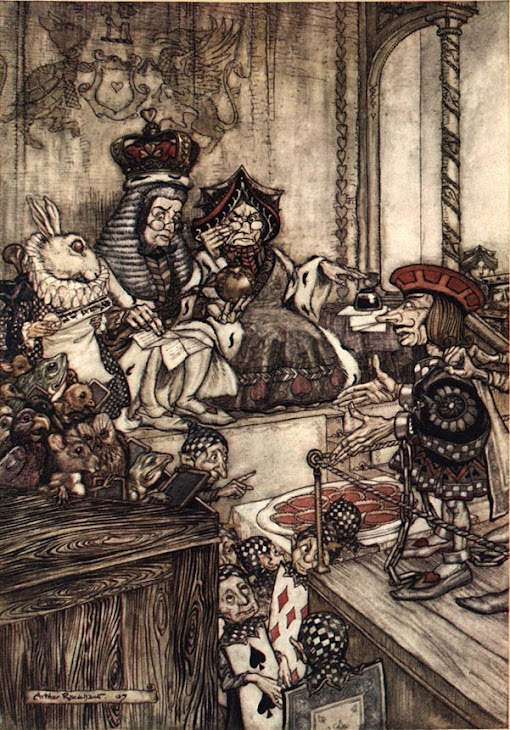Dear all,
on Thursday 11th March we will start our course with a practical example of what a lesson about Law and the Humanities (or better Law and Literature) can mean. On Friday 12th Prof. Skeel will introduce us to the Law and Literature movement in the USA and next week we will continue to analyse the different ways in which the connections between Law and Literature have been interpreted also in Europe. The first lesson will then be an attempt to place practice before theory. Our aim is to make you eager to learn more.
We will analyse “the Shakespearean play most closely linked in the popular mind with law”, THE very classic of the Law and Literature studies: "The Merchant of Venice". The play will give us imputs to think about some important legal issues and to better unserstand the perception of key legal problems in a certain historical period. To sum up, we will use the MOV to ask questions rather then give answers.
SHAKESPEARE IN LAW
Brief Outline:
The lesson will be focused on the following questions:
1) What was the role of Jewes in 16th/17th century Europe? /What does it mean not to be admitted in a community?
2) What was the discipline of usury? / What does usury mean?
3) What was the relation between law and equity in Shakespeare’s England? / What does equity mean?
Suggested reading:
D.J. Kornstein, Fie Upon your Law!, in “Cardozo Studies in Law and Literature”, 5.1 (1993): A Symposium Issue on “The Merchant of Venice”, pp. 35-56.
The lesson will be focused on the following questions:
1) What was the role of Jewes in 16th/17th century Europe? /What does it mean not to be admitted in a community?
2) What was the discipline of usury? / What does usury mean?
3) What was the relation between law and equity in Shakespeare’s England? / What does equity mean?
Suggested reading:
D.J. Kornstein, Fie Upon your Law!, in “Cardozo Studies in Law and Literature”, 5.1 (1993): A Symposium Issue on “The Merchant of Venice”, pp. 35-56.
Stefania Gialdroni CV:
Stefania Gialdroni is a research fellow (“assegnista di ricerca”) at the University of Roma Tre Law Faculty, the chair of Medieval and Modern Legal History. She obtained her PhD in 2009 “en co-tutelle” between the University of Milano-Bicocca and the Ecole des Hautes Etudes en Sciences Sociales - Paris (EHESS). In 2006 she entered the Marie Curie Program “European Doctorate in history, sociology, anthropology and philosophy of legal cultures in Europe”. In the framework of the European Doctorate she spent one year at the London School of Economics (LSE), and two years at the EHESS in Paris. She received several scholarships from the Max-Planck Institut für europäische Rechtsgeschichte in Frankfurt am Main, where she attended the International Max-Planck Research School for Comparative Legal History (2005-2006). In 2003 she graduated from the University of Rome Tre, Law Faculty.
She has been assisting Prof. Emanuele Conte in the organisation of the Law and the Humanities courses at the RomaTre Law Faculty since 2008.
The subject of her PhD thesis is the legal structure of the English East India Company during the 17th century.
DAVID SKEEL ON LAW AND LITERATURE
Brief Outline:
In this class, we will briefly explore the history of law and literature scholarship in the United States, and consider the prospects of this movement for the future. We will focus in particular on three recent strands of law and literature scholarship, which are often referred to as 1) law as language (associated with James Boyd White); 2) literature as empathy (associated with Robin West and Martha Nussbaum) and 3) law and narrative (associated with Patricia Williams).
Suggested readings:
- D.A. Skeel, Lawrence Joseph and Law and Literature, in "University of Cincinnati Law Review", 77.3 (2009), pp. 921-939.
- J.B. Baron, Law, Literature and the Problems of Interdisciplinarity, in "The Yale Law Journal", 108 (1999), pp. 1059-1086.
Prof. David Skeel's CV:
David A. Skeel is currently the S. Samuel Arsht Professor of Corporate Law at the University of Pennsylvania Law School (2004-), after having been Associate Professor of Law at the Temple University School of Law (1993- 1998) and Professor of Law at University of Pennsylvania Law School (1999- 2003) .
He is a graduate of the University of North Carolina (B.A. 1983) and the University of Virginia (J.D. 1987). His poems have appeared in Boulevard, Kansas Quarterly and elsewhere. He has written on law and literature or related issues for Columbia Law Review, Michigan Law Review, Legal Affairs, Wallace Stevens Journal, Philadelphia Inquirer, and other publications; and he served as an advisory editor of Boulevard in the 1990s.
He also is the author of two books:
- Icarus in the Boardroom: The Fundamental Flaws in Corporate America and Where They Came From (Oxford U. Press, 2005)
- Debt’s Dominion: A History of Bankruptcy Law in America (Princeton University Press, 2001) .
In 1999 & 2002 he received the Harvey Levin Award for Excellence in Teaching and in 2004 the Lindback Award (university-wide “Great Teacher” award).
For a complete overview on Prof. Skeel’s CV and his extensive list of publications see:
http://www.law.upenn.edu/cf/faculty/dskeel/

